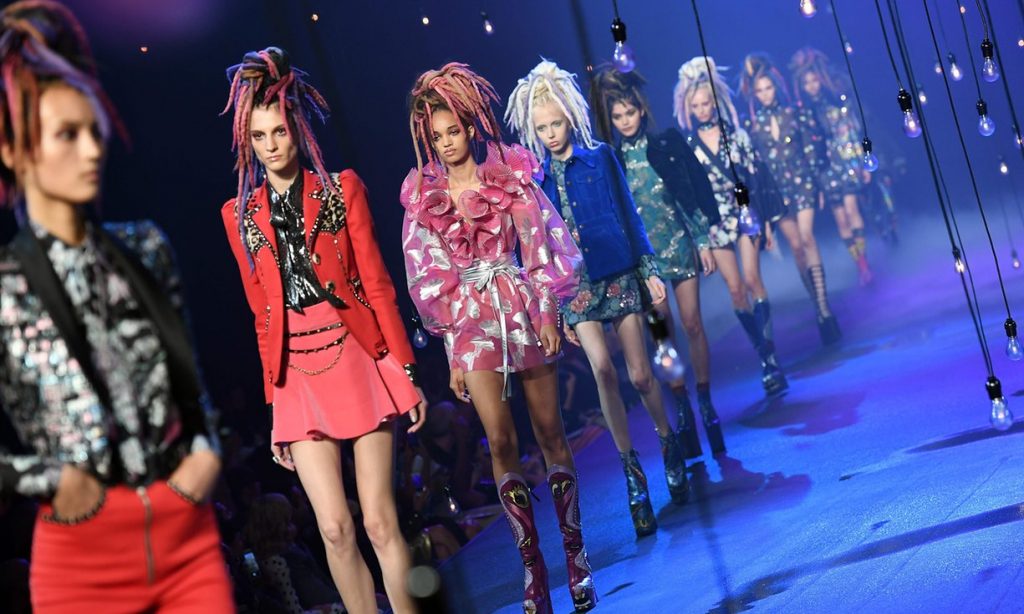We live in an increasingly global world – a tired statement at this point but one that on the face is quite true. With our constant updates on current trends, celebrities, influencers, and awareness of varied cultures, we are all global citizens in a way: Consuming information from different parts of the world that we never had access to just 20 years ago. And wielding that type of power can be intoxicating but with that intoxication comes a responsibility and due respect.
This sense of responsibility is what is lost on people and when the question of cultural appropriation crops up, the biggest infractions occur within the high fashion industry. The countless amount of times designers take aspects of people’s culture without the community’s stamp is infuriating. But as of late, I’ve begun to recognize that many designers don’t understand what is triggering about using the traditions of other communities without their presence or approval.
You see our hairstyles, garments, and traditions, but our faces and bodies are overlooked. Take your use of dreadlocks. Found in African, Afro-Caribbean and Indian communities, dreadlocks is a centuries’ old hairstyle that has gained popularity as of late. But do you know that its original use was born out of function and not fashion? It is a way to manage thick, coiled hair but over time. creativity and self-expression have emerged from it.
[Read Related: How Lakme Fashion Week Empowered a Brown Girl to Define her Life in Colors]
I have seen so much beauty on this twist of a timeless hairstyle but when the originators don it, we are not seen as beautiful. We are seen as dirty. Cue the thoughtless comment of “E! News” reporter Giuliana Rancic when she first saw Zendaya’s use of dreadlocks on the red carpet just last year.
However. when white people sport these hairstyles, a sense of cool, hipster-esque vibe is awarded to them. They get the praise that non-white originators never do and fashion designers who do this never pay homage to the communities that they took from. This is what you did when the majority of your runway models who donned dreadlocks were neither brown nor black women.
Do you not understand that we are seen as ‘ethnic’ and ‘dirty’ when we represent aspects of our culture? Do you not understand that what you’re doing is disrespectful? The industry needs to give proper credit and respect when aspects of our culture are used for profit.
[Read Related: Strategic Eating for Healthy Hair]
Acknowledge us. Talk to us. Pay respect to us. And if we don’t give the ok, then perhaps you should rethink how you’re presenting our ethnicity. I don’t mind people expressing themselves using aspects of cultures that are not theirs but what I do mind is the ignorance that often comes with it. Where are those ‘trends’ coming from? Do you even know? Or even more important, do you care to know? This lack of respect and appreciation is happening with increasing frequency and I find it hard to believe that many don’t know that this is thoughtless and tasteless.
I understand that high fashion is an exclusive market, one that is tailored as such, but I urge for a transformation within this industry—one that recognizes the increasing awareness of the different cultures that surround us and gives credit where credit is due.
Multidimensional in her talents, Duty Free Critic spends her days enthralled in her creative outlets. Whether she is critiquing music and fashion culture on her blog, or posting raps and personal style videos on her YouTube channel, Duty Free is always passionate in her pursuits. And no matter where she goes in life, one thing is for certain: she will always look at everything with a critical eye, but that doesn’t mean she can’t have a little fun along the way. Duty Free Critic works in digital design and resides in the Tri-State area. Follow her for daily updates on her blog, Twitter and YouTube channel.





